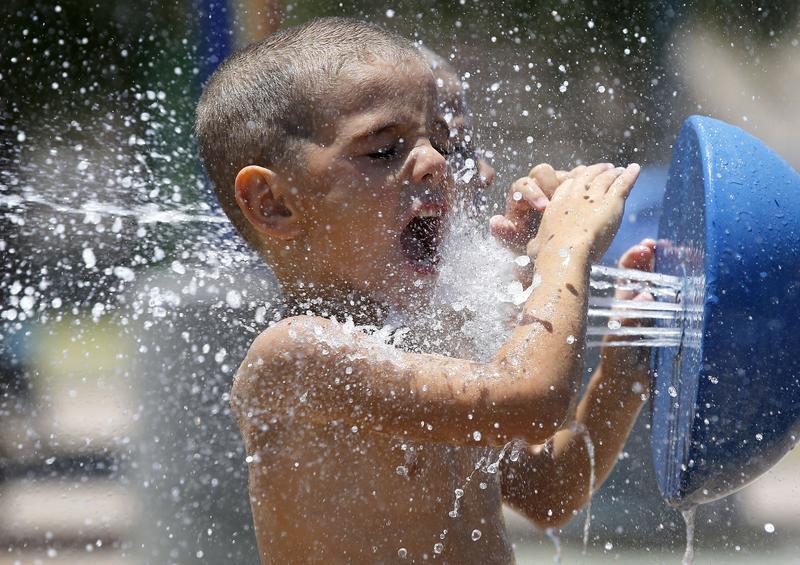PHOENIX (AP) — Arizona is in the midst of a prolonged heat wave that has produced record-high temperatures in Phoenix, prompted dozens of daily calls to the Humane Society about overheated pets, and sparked triple-digit temperatures in typically cooler mountain locations.
Phoenix hit 115 degrees Thursday, tying the record high for that date set in 1989, as the city baked in what could be a record-setting run of heat.
Meteorologists predict another 115-degree day on Friday.
The city is on track for 10 straight days of temperatures at or above 110 degrees. That would tie the record for the longest stretch of 110 and higher, set in August 2012, said Dan Leins, meteorologist at the National Weather Service.
Phoenix tied a record Wednesday for the hottest June 17 of all time as it hit 114 degrees, matching the mark set in 1896 when weather records were first kept.
Other Arizona cities are broiling as well, with Yuma expected to see even higher temperatures than Phoenix.
There’s little escape from the heat. The temperature has been hovering above 100 degrees past 10 p.m., and even mountain cities such as Sedona and Flagstaff are experiencing the same heat wave. Sedona is forecast to have highs above 100 throughout the weekend.
The state Department of Health Services reports an average of 30 to 40 people die every year in Arizona from heat-related complications, and 1,400 suffer from heat-related illnesses. The elderly population is the most vulnerable.
Heat-related complications include dehydration, cramps, exhaustion and heat stroke.
“It’s not uncommon to see an increase in hospital visits because people are overexerting themselves,” Leins said.
Nicole Pena, the Phoenix Rescue Mission’s community relations director, said people living on the streets also are at risk because of the lingering heat at night.
“They can’t really avoid the heat,” Pena said.
The organization has been active in helping Phoenix’s homeless population cope through its Code Red program that provides shelter, water, food and clothes.
“It was so hot my body wasn’t used to the up and down,” said Andrew Wright, who is currently taking refuge at the Phoenix Rescue Mission. “Even water isn’t enough to kill the heat.”
People aren’t the only ones affected. The Humane Society has been on call to treat animals affected by the triple-digit temperatures.
Arizona Humane Society spokeswoman Bretta Nelson said animals are at higher risk of heat-related complication because their bodies are closer to the ground.
The humane society is receiving a minimum of 50 calls a day, and about a third are related to the weather, Nelson said. Animal heat complications can include exhaustion, burned paws, heat stroke and death.
This article was written by YARA BISHARA from The Associated Press and was legally licensed through the NewsCred publisher network.
![]()











